Publications
Articles, publications, books, tools and multimedia features from the U.S. Institute of Peace provide the latest news, analysis, research findings, practitioner guides and reports, all related to the conflict zones and issues that are at the center of the Institute’s work to prevent and reduce violent conflict.
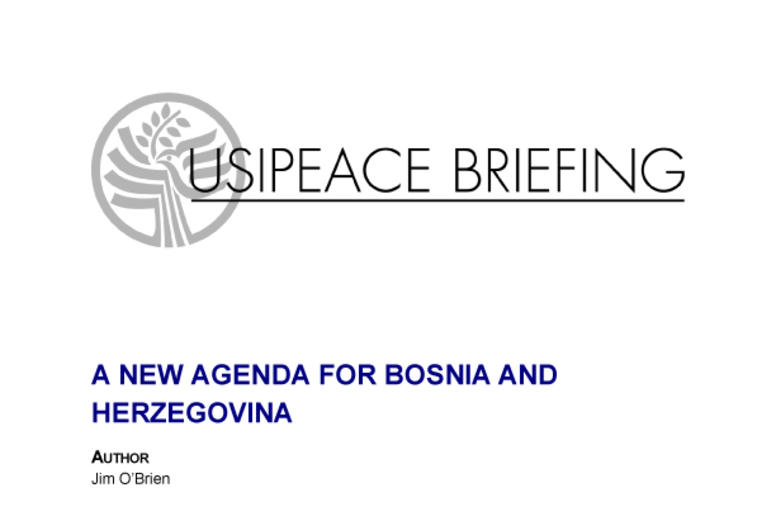
A New Agenda for Bosnia and Herzegovina
As concerns grow about Bosnia's post-war recovery, USIP presents its fourth report on recent developments in Bosnia and Herzegovina and various options the U.S. government, Europe and Bosnia could pursue to prevent a return to violence there. In his paper, author Jim O'Brien, who served as the presidential envoy for the Balkans in the 1990s, cautions against taking a big initiative in Bosnia to head off a future crisis, but rather advocates taking on many, smaller battles that will ultimately...
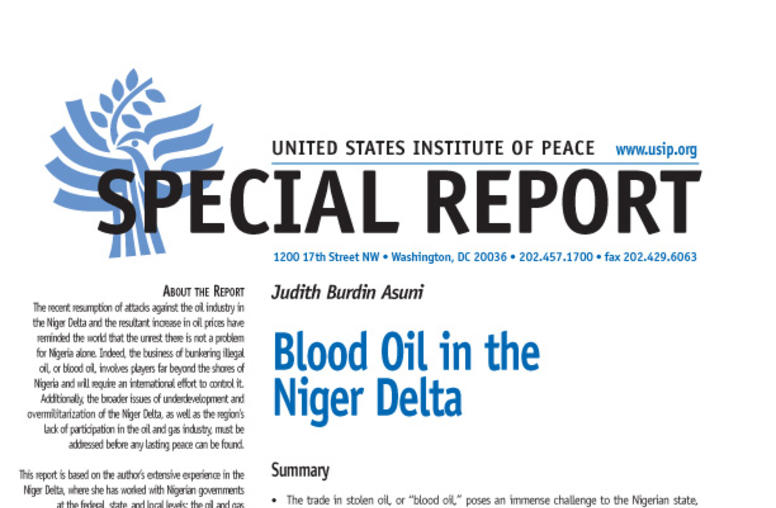
Blood Oil in the Niger Delta
The trade of stolen oil, or “blood oil,” in Nigeria is fueling a long-running insurgency in the resource-rich Niger Delta region that has claimed many lives. Oil “bunkering” – or theft – has fomented the armed conflict in the region, providing militant groups with funds to purchase weapons, and has increased instability in oil prices on world energy markets. Nigerian President Umaru Yar’Adua in July 2008 asked the Group of Eight nations for help in dealing with the problem, but no concrete ac...
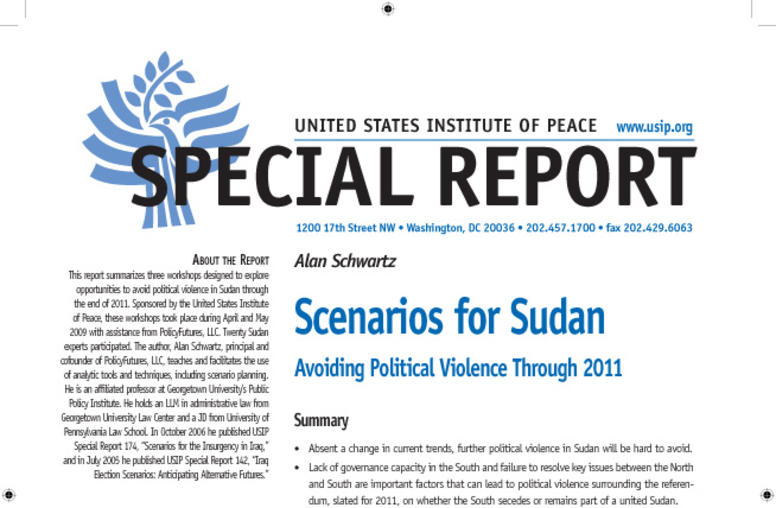
Scenarios for Sudan: Avoiding Political Violence Through 2011
More political violence will be hard to avoid in Sudan, barring a quick change in current trends, according to a new USIP report. Much of the outcome hinges on the handling of issues that involve the 2011 referendum on whether the South secedes from Sudan.
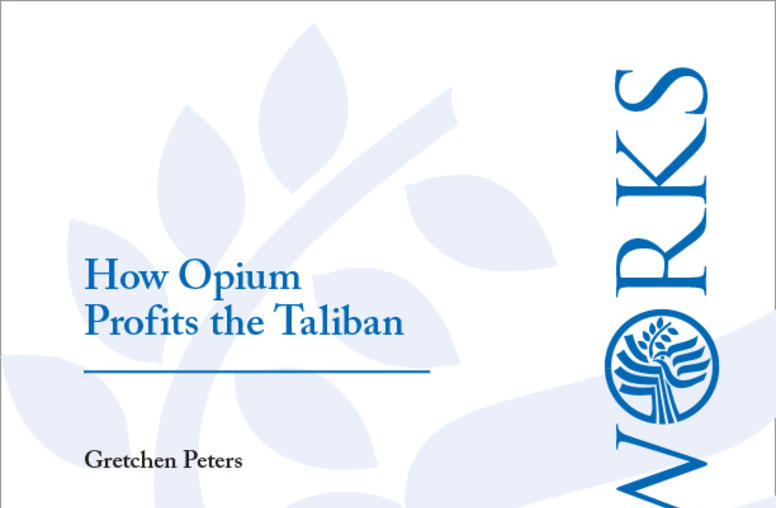
How Opium Profits the Taliban
In Afghanistan's poppy-rich south and southwest, a raging insurgency intersects a thriving opium trade. A new USIP report, How Opium Profits the Taliban, examines who are the main beneficiaries of the opium trade, how traffickers influence the Taliban insurgency as well as the politics of the region, and considers the extent to which narcotics are changing the nature of the insurgency itself.
Hearing on the Afghan Economy
USIP Visiting Research Scholar Jeremiah S. Pam testified on July 14, 2009, before the House Oversight and Government Reform Subcommittee on National Security and Foreign Affairs on efforts by the U.S., the Afghan government and others to spur the Afghan economy in an effort to stabilize the country.
Counting the Costs of Somali Piracy
Authored by USIP's Raymond Gilpin, this new working paper offers practical strategies to mitigate the rising costs of Somali piracy and lay the foundation for lasting peace. The upsurge in attacks by Somali pirates between 2005 and mid-2009 reflects decades of political unrest, maritime lawlessness and severe economic decline which has dire implications for economic development and political stability in Somalia.
The Real Bridge to Nowhere: China's Foiled North Korea Policy
This report examines the complexities of Chinese-North Korean relations, taking into account the perspective of China's border areas, a vital aspect of China's relationship with the Korean peninsula that is often overlooked.
North Korea, Inc.: Gaining Insights into North Korean Regime Stability from Recent Commercial Activities
By examining how North Korea, Inc. — the web of state trading companies affiliated to the Korean Workers’ Party, the Korean People’s Army, and the Cabinet — operates, this report highlights a new framework for gauging regime stability in North Korea.
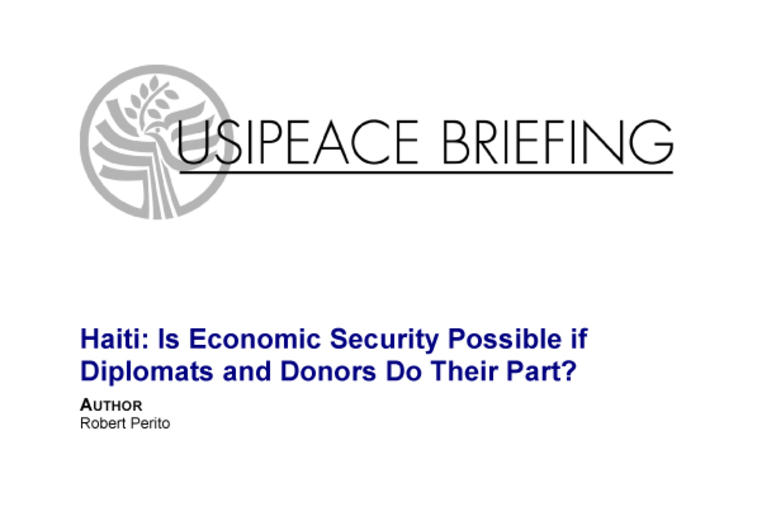
Haiti: Is Economic Security Possible if Diplomats and Donors Do Their Part?
In 2009, Haiti has been the subject of an unprecedented diplomatic initiative led by the United Nations. In rapid succession, Haiti received visits from the UN Secretary General Ban Ki-moon, the UN Security Council, former President Bill Clinton and Secretary of State Hillary Clinton and numerous senior delegations from Caribbean and South American countries
Won’t You Be My Neighbor: Syria, Iraq and the Changing Strategic Context in the Middle East
Overall, Syria has marginally benefited from the war in Iraq at both the regional and international levels. After watching the U.S. military unseat the Baathist regime next door in 2003 with unprecedented speed, it looked to many observers—including some in Damascus—as if Syria would be next in line.